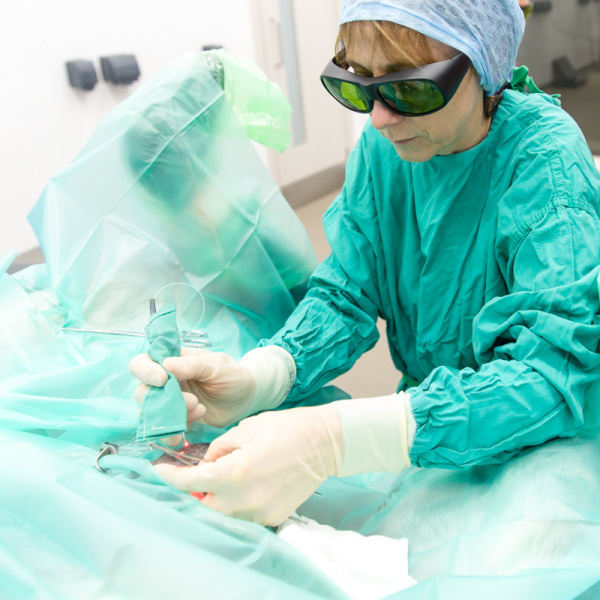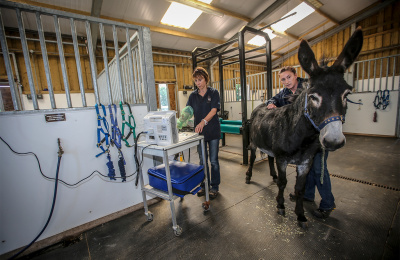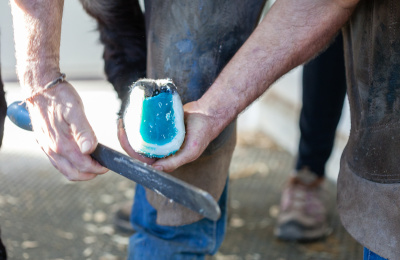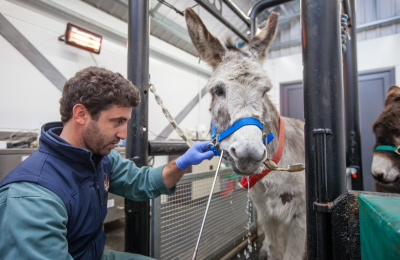Find out more about how a plasma bank at The Donkey Sanctuary was used in a case of colitis for donkey Dusuy.
Dusuy is an 11 year old gelding who was admitted to the Donkey Sanctuary hospital for diagnosis of a left fore limb lameness. X-rays of the hoof revealed the presence of a keratoma, an abnormal growth of keratin that extends into the soft tissues of the foot and gradually puts pressure on the pedal bone, causing pain. Surgery to remove the abnormal tissue went well, and initially Dusuy appeared to be making a good recovery.
However, a few days after surgery Dusuy’s behaviour changed. He was observed as being dull, and the regular checks that are performed to assess pain levels after surgery identified an increased pain score. Blood tests and a full clinical examination indicated that he had developed inflammation of the large colon (colitis). Colitis occurs as a result of disruption to the gut microflora either due to the presence of a specific pathogen or as a result of multiple stressors.
Colitis can cause a rapid drop in blood proteins as the colon becomes inflamed and “leaky”. If this is not corrected quickly, affected donkeys become extremely sick and the condition can be fatal due to the development of secondary complications such as hyperlipaemia and sepsis.
Over the last 12 months the veterinary team have developed a plasma bank at the hospital, using blood taken from donor donkeys. To create a plasma bank we sought ethical approval from the RCVS, and put in place safeguards for the welfare of donor donkeys. Donors have to be content to give blood without sedation, enjoying a feed as a reward for their cooperation. With their help, we have frozen enough plasma to use on emergency cases such as this one.
Thanks to our plasma bank, the veterinary department had immediate access to frozen donkey plasma providing blood proteins to help stabilise Dusuy, alongside administration of other conventional treatments for colitis. After a longer than expected stay in hospital, Dusuy was able to move to one of our farms for convalescence. Throughout his entire stay Dusuy had his field companion close by, as we recognise the strong bonds donkeys form with their friends and the essential role they play in keeping our patients relaxed and content.






